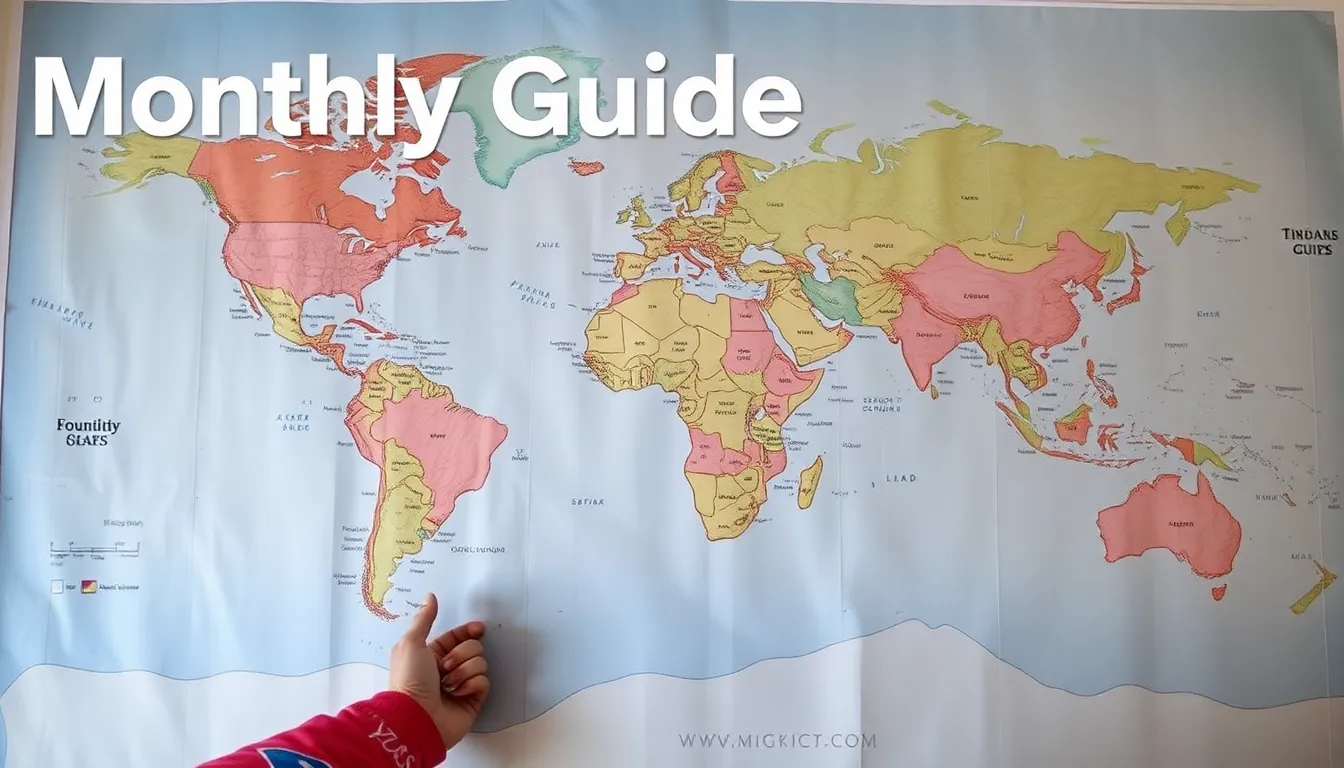Planning a trip can often feel overwhelming, especially if it’s your first time embarking on such an adventure. With so many factors to consider—flights, accommodations, insurance, itineraries, and even packing—it’s easy to lose track of what needs to be done. However, with a structured approach, you can simplify the process and enjoy the journey from the moment you start planning.
Drawing from nearly two decades of travel experience, I’ve honed a systematic checklist that ensures nothing important is overlooked during the planning phase. This guide will break down the trip planning process into month-by-month steps, allowing you to make informed decisions and enjoy a seamless travel experience.
Choosing Your Destination: The First Step in Trip Planning
Before diving into logistics, it’s essential to pinpoint your travel destination. Instead of saying, «I’m going somewhere,» clarify your goal by stating, «I am traveling to Tokyo for two weeks next spring.» This specificity not only makes planning easier but also helps you stay focused.
If you’re struggling to decide where to go, consider these tips:
- Reflect on your interests: Are you looking for adventure, relaxation, or cultural immersion?
- Consider your budget: Some destinations are more affordable than others.
- Think about the season: Weather and local events can impact your experience.
- Look for inspiration: Travel blogs, social media, and friends can provide great ideas.
Once you’ve selected a destination, the next step is to begin budgeting. Key expenses to consider include:
- Accommodations
- Flights
- Meals
- Activities and excursions
- Local transportation
Research these costs through guidebooks, online resources, or travel blogs to create a realistic savings plan.
Start Saving: Budgeting for Your Trip
With a destination in mind, it’s time to focus on your finances. Begin saving early to ensure you can afford all aspects of your trip. Here are some effective strategies:
- Create a dedicated travel savings account.
- Set a monthly savings goal based on your overall budget.
- Reduce unnecessary expenses, such as dining out or subscriptions.
- Consider side jobs or freelance work to increase your income.
Additionally, it’s wise to start collecting travel points and miles by obtaining a travel credit card. Many cards offer substantial sign-up bonuses that can be redeemed for flights or accommodations, significantly reducing your travel costs.
Visa Regulations and Health Considerations: Essential Preparations
About eight months before your trip, check the visa requirements for your destination, since regulations can vary widely. For instance, many countries offer visa-free entry for short stays, while others require advance applications. Use resources like the State Department or the appropriate government website for your country.
Another crucial aspect of preparation is ensuring your passport is valid for at least six months beyond your planned return date. This is a common entry requirement in many countries.
Moreover, investigate any necessary vaccinations or health precautions. The CDC website provides valuable information on immunization requirements and health advisories for travelers.
The Flight: When and How to Book
Once you’re within the 4-6 month range of your departure date, it’s time to book your flights. Generally, booking a flight three to four months in advance yields the best rates. However, if you’re traveling during peak season, consider booking even earlier.
To find the best deals, utilize flight comparison tools like:
Always sign up for fare alerts to be notified of price drops. If you have accumulated points through a travel credit card, now is the perfect time to use them for your flight.
Finding Accommodation: Where to Stay
About 3-4 months before traveling, secure your accommodations. If your trip is less than two weeks, consider booking all your nights ahead of time to avoid last-minute stress. For longer trips, you might choose to book only the first few nights, allowing for flexibility in your plans once you arrive.
To find great deals on lodging, use trusted platforms such as:
- Hostelworld for budget-friendly hostels.
- Booking.com for hotels and guesthouses.
Don’t forget to check cancellation policies and consider alternative options like Couchsurfing or House Sitting for a cultural exchange experience.
Plan Activities: Making the Most of Your Time
As you approach the two-month mark, it’s time to plan your itinerary. This phase can be exhilarating as you explore potential activities, tours, and excursions. Consider pre-booking popular attractions to secure your spot and avoid long lines.
Utilize platforms like Get Your Guide to discover activities ranging from local tours to unique experiences in your destination. Research and prioritize what you want to see to maximize your enjoyment.
Travel Insurance: A Crucial Safety Net
One month before your departure, it’s essential to purchase travel insurance. Many travelers underestimate its importance, but it protects against a variety of unforeseen events, from medical emergencies to trip cancellations.
Travel insurance can cover:
- Medical expenses
- Trip cancellations or interruptions
- Theft or loss of belongings
- Emergency evacuations
Read reviews and compare policies to find the best option for your needs. Investing in travel insurance provides peace of mind, allowing you to enjoy your trip without worry.
Final Preparations: Packing and Last-Minute Details
As departure day approaches, create a packing list. Focus on essentials and avoid overpacking; remember that you can purchase items as needed during your travels. Consider these packing tips:
- Choose versatile clothing that can be mixed and matched.
- Include necessary toiletries and any medications.
- Limit electronics and ensure they are travel-friendly.
- Pack a small first-aid kit for minor emergencies.
Lastly, make sure you have all necessary documents organized and easily accessible, including your passport, travel insurance information, and accommodation details.
On the Day of Departure: Enjoy the Journey
With everything in place, it’s time to embark on your adventure. Stay calm and trust your planning. Remember, traveling should be an enjoyable experience, and the small hiccups along the way often make for the best stories.
Whether it’s your first trip or your hundredth, embrace the excitement of exploration, and prepare for the memories you’ll create. Safe travels!







